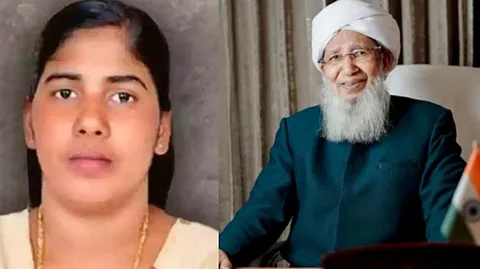

In a significant humanitarian and diplomatic intervention, a prominent Indian Muslim cleric has helped delay the execution of Nimisha Priya, an Indian nurse sentenced to death in Yemen. Sheikh Abubakr Ahmad, the Grand Mufti of India, played a key role by reaching out to influential Yemeni scholar Sheikh Umar bin Hafiz, urging him to mediate with the family of the Yemeni man Priya was convicted of killing.
Nimisha Priya, originally from Kerala, was found guilty of killing Talal Abdol Mehdi in Yemen, though her legal team maintains the act was unintentional and took place under extreme abuse and duress. Following the Grand Mufti's appeal, Sheikh Umar dispatched his students to initiate dialogue with the victim’s family. After prolonged discussions, the family agreed to postpone the execution by four hours—granting the legal team crucial time to continue negotiations and pursue alternatives such as diyah (blood money) under Sharia law.
Sheikh Abubakr Ahmad, also known as Kanthapuram AP Aboobacker Musliyar, was conferred the title of Grand Mufti in 2019 by the All India Tanzeem Ulama-e-Islam. Though honorary and not government-sanctioned in India, the title holds immense influence. A respected Islamic scholar from Kozhikode, Kerala, Sheikh Abubakr serves on numerous national and international Islamic councils and is widely recognized across South Asia for his efforts in interfaith harmony and global religious outreach.
His intervention in Priya's case has been lauded as a powerful example of religious diplomacy aiding in complex international legal matters, especially in regions with limited formal diplomatic access.
(This story is published from a syndicated feed)